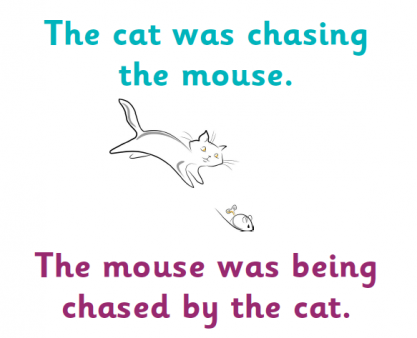Like many other aspiring authors, I’m always sharpening my writing skills, dozens of writing books (including one of my favorites: On Writing by Stephen King) lined up on my bookshelf. Almost all these books share the same stance when comparing the active and passive voices. They strongly prefer the active voice over the passive voice. Always. Black and white. No grey area. Their justification? The books claim the passive voice sound weak when compared to the (strong) active voice.
Sorry — that’s baloney.
Some situations call for passive voice. What I’m saying is this: sometimes passive voice outperforms the active voice. Voice selection depends on whose story you want to tell. Here’s a simple example: Jack loves Jill. In this example, Jack (the subject) loves (the action) Jill (the object); as readers, we expect that the following sentences revolve around the subject, Jack. But, what if the author really wanted to focus the story on Jill, instead? Simple: change the voice from active to passive. Switch the subject from Jack to Jill and change the tense: Jill is loved by Jack. Jill (subject) is loved (the action) by Jack (agent).
How about taking a look at an example of changing the voice (from passive to active) adds confusion to the mix. In the two examples below, the top is written in passive, the bottom its active voice equivalent.


Does the conversion improve the movement, improve the quality, improvement the passage as a whole? No! If anything, the new passage confuses us readers! We are now distracted, our attention pointing towards the scientists, when we should be focusing on the science.
References
